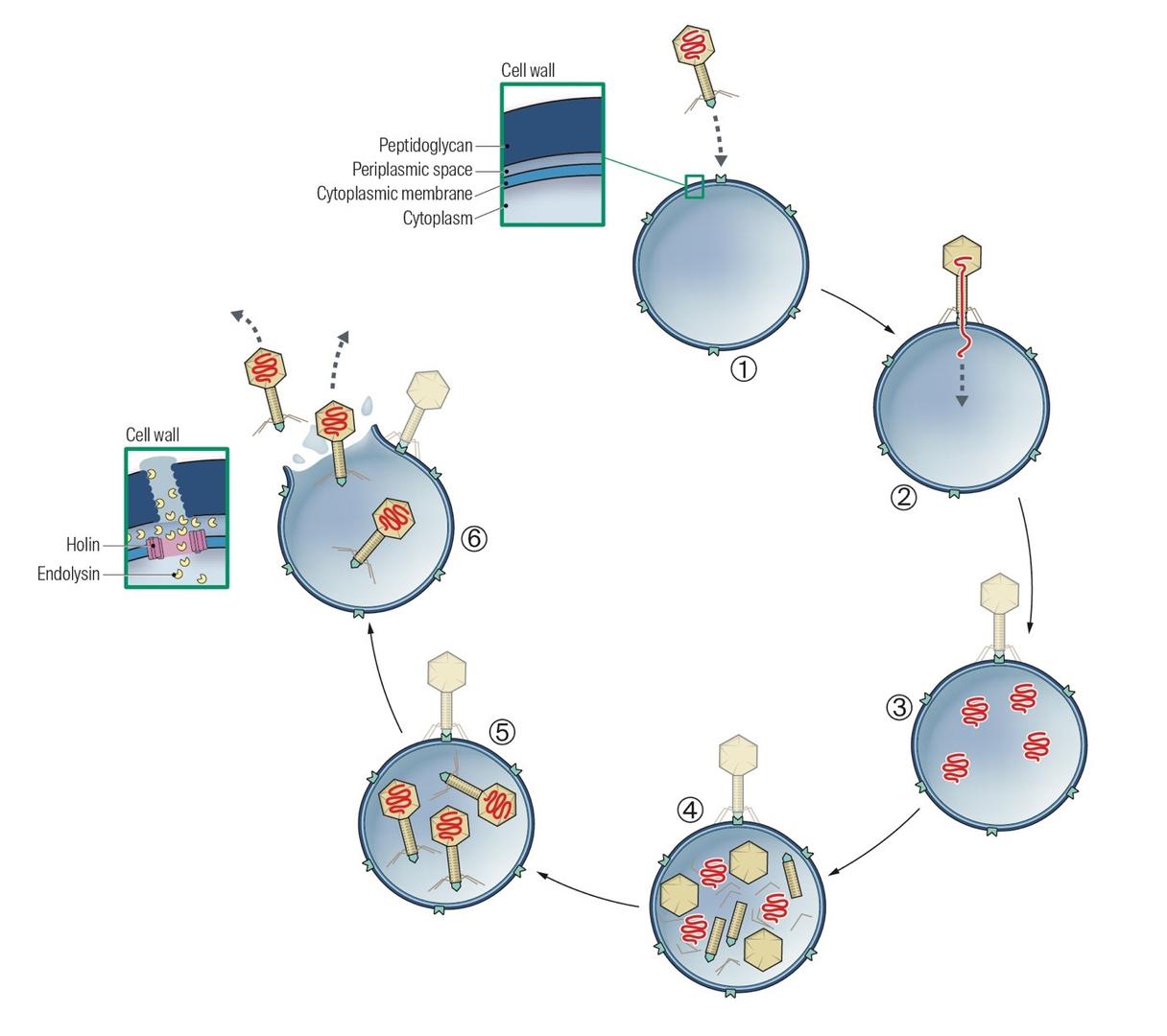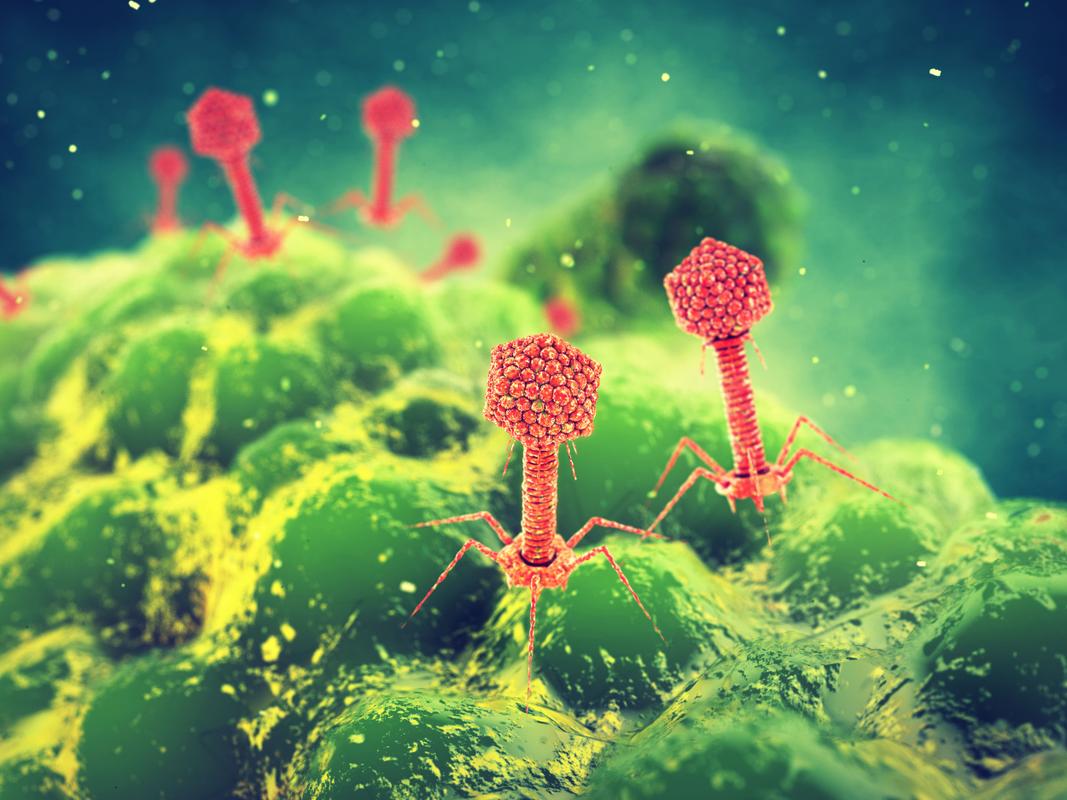How does bacteriophage therapy work?
Bacteriophages (phages) are the natural enemies of bacteria. Strictly lytic phages recognise and infect their target bacteria, transforming the bacteria into a ‘phage-producing machine’. Ultimately, the bacteria burst and releases new phages in the environment, enabling them to infect other bacteria, after which the process can be repeated (Figure 1).
The therapeutic potential of phages is apparent from:
- The capacity for ‘self-amplification’. This is a contributing factor for the efficacy of phage therapy and distinguishes phages from conventional antibiotics.
- The presence of depolymerases on the tail structures of some phages, which can degrade the extracellular matrix of biofilm-forming bacteria.
- The high specificity of phages for their bacterial host. Human cells or the human bacterial flora is not influenced by phages.
- The fact that phage therapy is not influenced by antibiotic resistance mechanisms.

Figure 1: Life cycle of a lytic bacteriophage. Source: Onsea et al. Eur Cell Mater. 2020; 39:193-210.
Who is eligible?
The following strictly defined infection disease qualify for bacteriophage therapy:
- Chronic rhinosinusitis
- Pulmonary infections: bronchiectasis and cystic fibrosis
- Musculoskeletal infections
- Sepsis (blood poisoning)
Referral procedure
For the time being, bacteriophage therapy is only possible if the patient meets a number of strict conditions. As a result of this, only doctors can refer patients.
-
GPs and specialists: contact via bacteriofaagtherapie@uzleuven.be
-
Patients with questions about bacteriophage therapy are asked to contact their GP or attending doctor.
